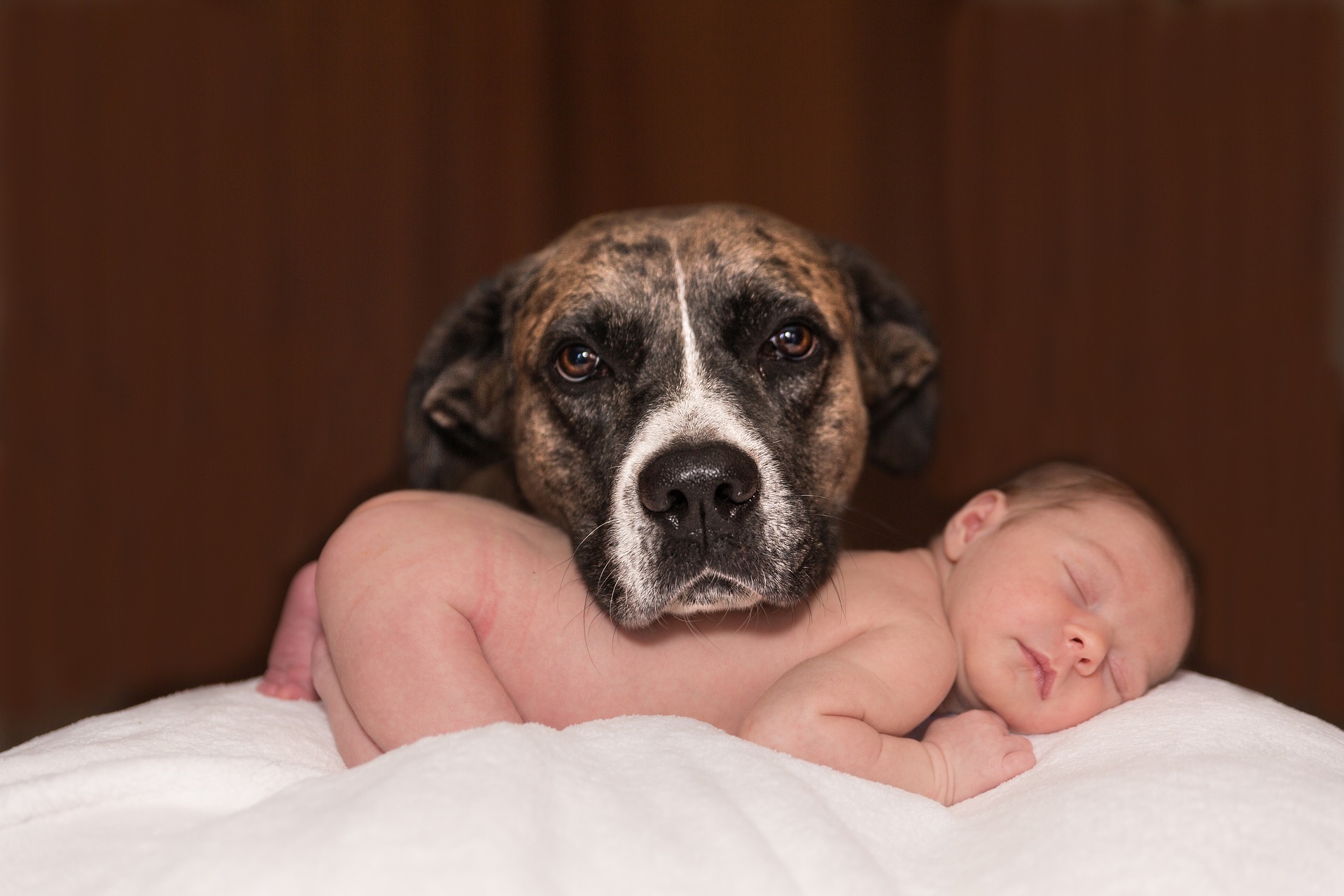A new baby in the house completely alters the family routine and dynamic.
Dogs, who thrive on consistent schedules, are likely to be overwhelmed just like you are with these momentous changes. There will be new unfamiliar and sometimes unpleasant sounds, smells, and objects that your dog needs to get used to. They may also get a bit jealous of the attention being paid to the new little one. Though you cannot fully prepare your dog for the baby, there are steps you can take to get Rover accustomed to some of the changes that will accompany the arrival of new baby.

Use Verbal Commands
Work with your dog during the pregnancy to improve their grasp of vocal commands. While hand signals are helpful with training and tricks, you will have your hands full (literally) most of the time with the new baby. If you are able to train your pup to listen and respond well to vocal commands unaccompanied by signals, it will make it much easier to control them when your hands are occupied. You will also want to work on discouraging behaviors like excessive barking or jumping that will be disruptive or dangerous around the baby.
Introduce New Things
Familiarize Rover with as many new sounds, smells, and items as you can before the new baby’s arrival. This will help limit the amount of household changes your dog has to acclimate to.
Allow your dog to explore the baby’s toys, clothes, and blankets. Be sure to monitor them closely to make sure they don’t begin chewing on any of the toys; if they do, remove the toy and offer Rover one of their own toys instead. Your pup needs to be familiar with the objects, but understand that they are not for them to use. Randomly play clips of newborn sounds throughout the day such as crying, laughing, and cooing. Try to incorporate sounds that new machines will make as well such as baby monitors, musical toys, or breast pumps. Finally, babies will grab and poke dogs before they learn the proper way to interact. Introduce your dog to these unexpected touches by randomly poking or tugging their ears, tail, face, and paws.
Begin Routine Changes Early
Babies drastically change our daily routines. We have control over some aspects, but other parts (like being woken up throughout the night) are quite unpredictable. Begin slowly altering your dog’s schedule to help prepare them for the new routine. For example, you may currently feed your pup at 6:30am on the dot. With a baby, you may not always be able to feed Rover at the same time. Start feeding your dog at randomized times throughout the morning and evening–if you feed them at 7am one morning, wait until 9:30 to feed them the next. If you plan to change the amount or length of your daily walks, begin making the switch now. Some households find it easiest to hire a dog walker during the first few weeks after the birth; it’s a good idea to interview candidates and have one scheduled in advance. Do you plan on removing certain privileges after the baby comes, such as limiting which furniture your dog can get on or closing off the nursery room? Slowly incorporate each of these new rules one by one in the months before your baby’s birth.
If you have a new baby puppy at your house, call Gulf Coast K9 Dog Training for puppy training classes. today!




